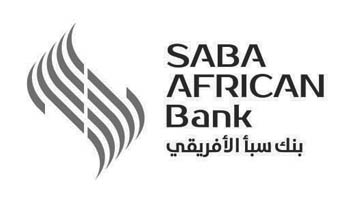VP Osinbajo’s recent visits making headway in the pursuit of stability in the region.
The conflict in the Niger Delta continues to challenge both the Nigerian government and the international community. Recently, Minister of Petroleum Ibe Kachikwu stated that, “Niger Delta militants will be the biggest challenge of the 7 Big Wins programme, others are within our reach because you can’t get a handle on it until its resolved.” Past efforts by administrations were insignificant however the current regime lead by President Buhari and Vice President Osinbajo have demonstrated a genuine willingness to solve fundamental issues through serious political dialogue and peace building. While the 7 Big Wins document proposes several long-term initiatives, the short-term roadmap is to strengthen security while improving environmental conditions, diplomacy and collaborative effort between oil producing companies and the locals.
Any credible peace process must involve all parties to the conflict, including government representatives, the communities of the Niger Delta, the militants and oil companies in the region. A framework for discussion, a forum for articulating grievances, and a well-developed agenda are all needed to begin a negotiation process that will lead to a comprehensive solution of the relevant political, economic and security problems. Attacks by militant groups, who want a greater share of the country’s energy wealth to go to the impoverished oil-producing swampland, have seen oil production significantly reduced since 2016. Due to sabotage, they were losing around a billion barrels of oil per day. “As a government,” Buhari points out “we could have used our military might to respond but we have always made it clear that we preferred dialogue to create peace.” In the end, leaders of the region led the peace and dialogue initiative, resulting in less frequent attacks.
Currently, the peace option has moved forward with Vice President Osinbajo, who has been visiting major areas in the Niger Delta, to harbor constructive relations. At these visits, Osinbajo leads high-level delegations of the Federal Government interacting with leaders and representatives of the oil-producing communities in continuation of ongoing outreach efforts towards a long lasting and permanent resolution. Although these visits have made some progress, as Minister Kwachiku points out, “production is up to 1.95mb from the lows of 1.4mb while militancy attacks are less with an average of one every month compared to five or six per week.”
While this progress has led to a somewhat unofficial truce, it still has not transferred to some of the leading oil companies in the region. Forcados, which can ship more than 200,000bpd and was the only major pipeline attacked that remains offline, will still need more assurances. “Unfortunately, the pipeline traverses a lot of area so there’s a lot of people in your path,” explains Amni CEO Tunde Afolabi. “The companies that operate in those communities need to be more engaged with the communities where they operate. They need to find some common ground where they can live in peace. It’s happening slowly but at least it’s happening.”
Across the country, in the Niger Delta, and in parts of the North Central region, Buhari’s administration are visibly committed to engaging with local communities, to understand their grievances, and to create solutions that respond to these grievances adequately. “We are fully committed to having an effective dialogue and positive engagement that will end the crisis in the oil-producing areas,” stated VP Osinbajo “and we believe that these visits will further boost the confidence necessary for the attainment of peace and prosperity in the areas and the Nigerian nation in general.” While more localised resource control and accountability are needed in the Niger Delta, the Buhari administration’s ability to play a constructive role in establishing security is equally important.
While the Nigerian government insists it will handle the matter internally, all international assistance is needed since the problems in the Niger Delta also destabilise global markets, especially with rising oil prices. “We must all recommit to working together to make the Niger Delta a vibrant and dynamic economic zone,” echoing the need for intense cooperation in the region where the country obtains 90 per cent of its foreign earnings. Bringing comprehensive peace and stability to the region will require the Buhari administration to fulfill its own vision set out in the 7 Big Wins. With transparent dealings and extensive consultations among all necessary players, achieving peace in the Niger Delta has moved from idea to execution under the Buhari government.





















